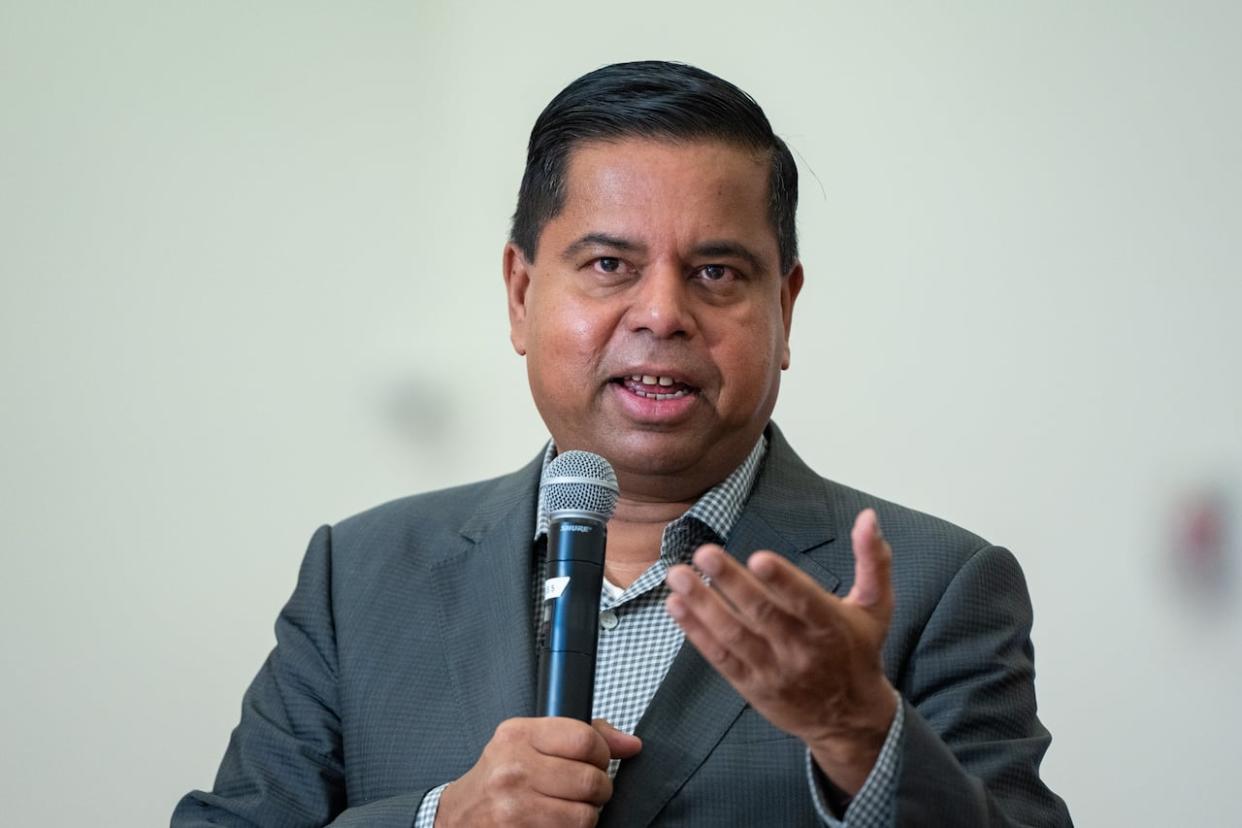Canada funds effort to locate, memorialize Inuvialuit residential school burial sites

The Canadian government has announced new funding to locate and memorialize burial sites at former Inuvialuit residential schools, and to open a new shelter in Inuvik for survivors of violence and their families.
The government and the Inuvialuit Regional Corporation (IRC) also announced the signing of a new memorandum of understanding that they say will help guide the work of the two treaty partners, advance reconciliation and renew their Inuit-Crown relationship.
"Today, we are demonstrating what can be achieved through a partnership based on mutual respect, creative foresight and a willingness to learn from each other," said IRC CEO Duane Smith in a March 6 federal government news release announcing the MOU.
"For example, working directly with us on critical infrastructure projects, many federal departments have come to understand higher cost of construction in the North and the need to account for this at the planning stage. We are hopeful that this learning will reach all departments so that we can continue our good work."
June marks the 40th anniversary of the Inuvialuit Final Agreement between the Inuvialuit Regional Corporation and Canada, said Crown-Indigenous Relations Minister Gary Anandasangaree.
"And as in any relationship, you know, 40 years is a long time," he said
The parties need to update the agreement to incorporate the principles of the United Nations Declaration on the Rights of Indigenous Peoples (UNDRIP).
They also need to address some outdated language.
The changes will not fundamentally change how the IRC operates or the relationship with Canada, Anandasangaree added.
The goal is merely to have the agreement address modern realities.
More than $850K to locate, document and memorialize burial sites
The government has also announced it is providing slightly more than $850,000 over two years to help the IRC locate, document and memorialize burial sites at former residential schools.
The money will help pay for research, knowledge gathering, community engagement and commemoration initiatives related to nine schools attended by children from Aklavik, Inuvik, Paulatuk, Sachs Harbour, Tuktoyaktuk and Ulukhaktok.
The schools include:
Shingle Point
Hay River Anglican
All Saints
Fort McPherson
Grollier Hall
Stringer Hall
Akaitcho Hall
Grandin College
Breynat Hall
"Essentially, it's to support communities to find answers [about] their loved ones," Anandasangaree said.
"It is critically important that young people who went missing are accounted for, but also communities are able to find closure and to find ways to heal this loss."
In addition to funding the residential school project, the government has announced funding for the Inuvialuit Family Wellness Centre, a new shelter in Inuvik that will provide culturally safe and trauma-informed services and supports for survivors of violence and their families
The ceremonial groundbreaking for the project took place this week, Anandasangaree said.
"It's one of those … very critical parts of the work that we need to do to address the national crisis of missing and murdered Indigenous women and girls ... and then also, you know, overall families [need] to be able to heal and to be supported in very difficult times."


